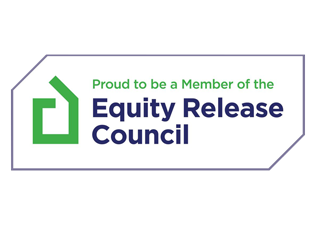Here, we debunk equity release myths and explain the role equity release can play in boosting your finances.
Although equity release has soared in popularity in recent years, many people still have misconceptions around how it works. These equity release myths often mean that people overlook the benefits of a lifetime mortgage.
A lifetime mortgage, the UK’s most popular type of equity release scheme, enables you to access a portion of your home’s wealth as a tax-free lump sum. This sum, plus the interest accrued, need only be repaid upon your death or when you move into long-term care and your property is sold.
Equity release myth one: I’ll end up owing more than my home is worth
Provided you take out an equity release plan with a provider approved by the Equity Release Council, your plan will come with a no-negative-equity guarantee, which ensures you will never owe more than the value of your home when it is sold.
In the unlikely event that your home sells for less than the amount of the mortgage, the remaining balance will be written off. Typically, once the mortgage has been repaid, any remaining funds will be paid to you or the beneficiaries named in your will.
Equity release myth two: I’ll have to make monthly payments with a lifetime mortgage
There are no monthly payments to make with a lifetime mortgage – unless you choose to make them, of course. Some plans allow you to make optional, penalty-free repayments of up to 10% per year of the mortgage balance.
If you choose not to do this, interest on the amount you’ve borrowed will roll up over time. This only has to be paid back when the home is sold, either when you pass away or move into permanent long-term care. If you’ve taken out an equity release product as a couple, it will continue for as long as one of you remains in your home.
Equity release myth three: I’ll no longer own my home
Equity release doesn’t mean selling your home to the lender: you are simply borrowing against it, and you remain the owner. Unlike a conventional mortgage, a lifetime mortgage has no fixed end date, so the mortgage lasts for as long as you need it to. As many lenders restrict the choice of mortgages for the over 60s, this can be invaluable for older homeowners.
Equity release myth four: I can’t release equity from my home because I’ve still got a mortgage on it
Having a mortgage doesn’t mean you can’t release equity from your home. In fact, using property wealth to pay off an existing mortgage is one of the most popular uses of a lifetime mortgage.
Steve Wilkie, Executive Chairman of equity release specialist Responsible Equity Release, said: “With a lifetime mortgage, the customer receives cash in exchange for a first charge on their property to the equivalent amount. This can then be used to repay the existing mortgage, all in the same legal transaction. They’ve now got a lifetime term, and no worries over repayment. Customers who want to make regular monthly interest payments can choose a suitable plan and set up a direct debit. If they can’t afford to pay anymore, or miss three payments, the mortgage doesn’t default – it automatically switches to rolled-up interest.”
Equity release myth five: There won’t be anything left to leave my loved ones
Lifetime mortgages have become increasingly flexible in recent years, and there are now plenty of plans available which allow you to protect a portion of your equity for inheritance.
If you don’t want your loved ones to have to wait until you die before receiving financial support from you, you could use equity release to provide them with an early inheritance. Bear in mind, however, that using a portion of your equity now means there will be less available to you later, and may reduce the value of your estate.
According to figures from the Office for National Statistics, financial gifts and loans are most commonly received by younger people, particularly those under the age of 44.
“It’s no surprise that younger people are the most likely to receive a gift or loan from a family member,” said Mr Wilkie.
“Their grandparents were the generation who were told they ‘never had it so good’, and they want the same things for their children and grandchildren. This desire partly explains why there has been such a large rise in equity release this year. Homeowners released over £11m from their homes every day in the third quarter of 2019, and a large chunk of this will have been to help younger family members buy property, or to contribute towards school fees and living expenses.”
Equity release myth six: This is an expensive way to borrow
Customers are often surprised at how cost-effective lifetime mortgages have become. As equity release has increased in popularity, so the options available to customers have also increased, with many reducing the cost of borrowing.
For example, you can choose to withdraw an initial lump sum, but you will also be able to create a reserve account of further funds that can be accessed at a later date. Interest is not charged on the reserve until the money is released, providing you with a rainy-day fund to use in the future. This can offer you an effective way of limiting the roll-up of interest.
In addition to ways to mitigate the roll-up of interest, the interest rates themselves are competitive. The interest rates depend on your age, house value and the type of plan that you choose, but usually average around 2.5%-4.5% and reached record lows in 2020.
[Source: telegraph.co.uk/financial-services, 18 December 2020]
Want to know more? Get in touch!
Image by Gerd Altmann from Pixabay







